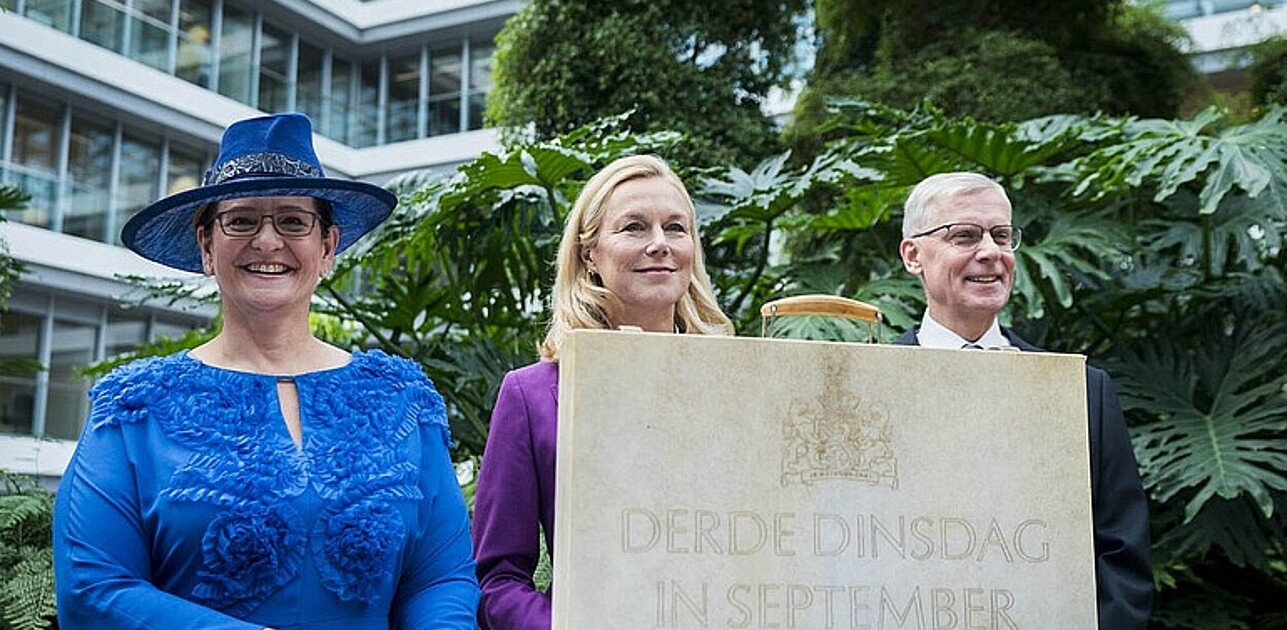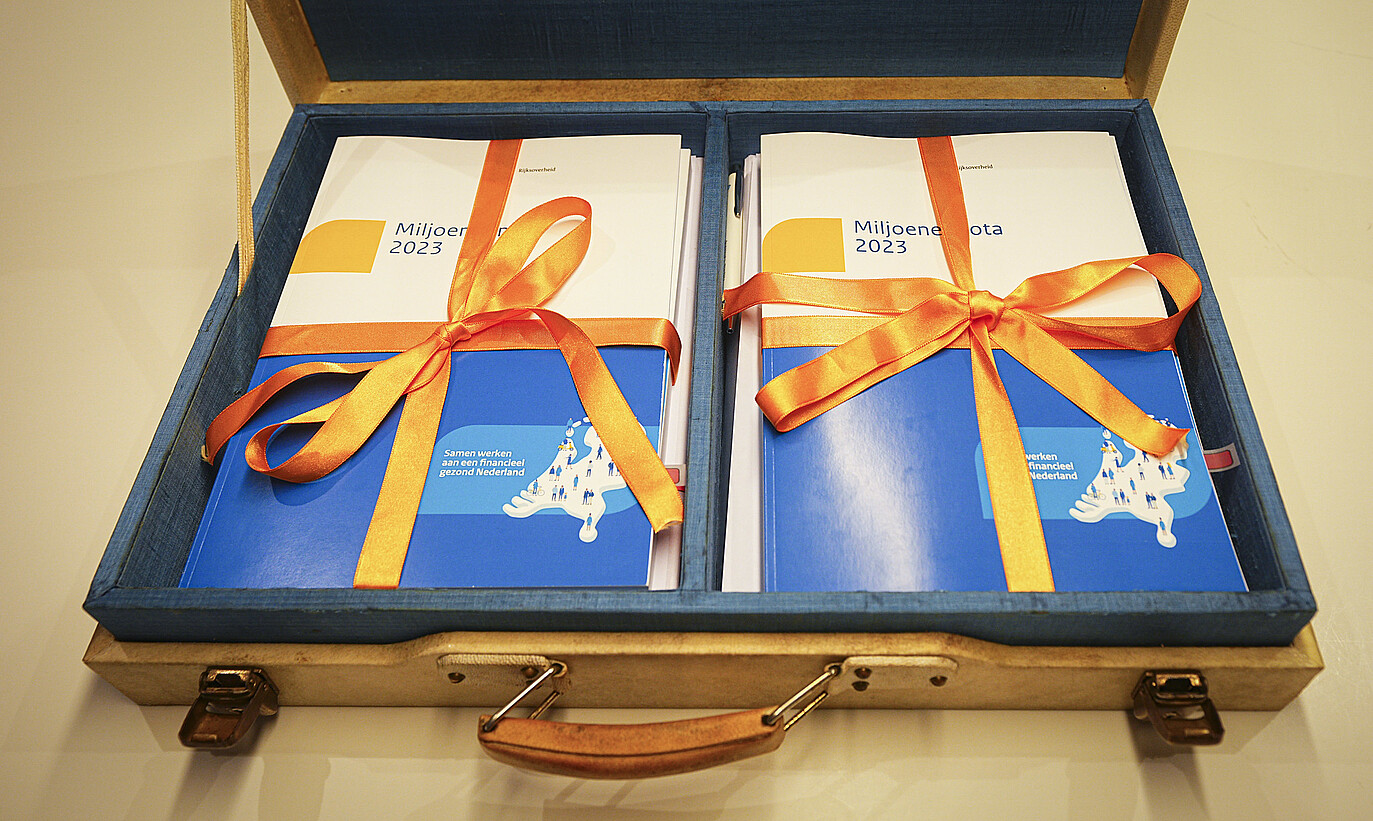

Blog: Tuesday, 20 September 2022
King Willem-Alexander will give his Prinsjesdag speech on 20 September 2022 to officially open the new Parliamentary year, and the Dutch government will publish its new tax plans. Naturally, against the backdrop of soaring inflation and EU co-ordination on issuing a windfall tax on energy companies’ profits, there will be no shortage of interested listeners – both businesses and Dutch citizens alike. So, what can we expect is going to change? Dr Saskia Kohlhase from Rotterdam School of Management, Erasmus University (RSM), explains the plans and their effects. Dr Kohlhase’s research focusses on economic and societal consequences of taxation.
Responsible governments need to find a balance between financing public services and taxpayers’ ability to pay. Over the last two decades, countries around the world have reduced corporate income tax rates to compete for economic activity. Before the Covid pandemic, the Dutch government had planned to reduce these rates further, but this only works when the economy is growing, and they can finance their expenditures.
In light of inflation and an energy crisis, the plans for 2022/2023 will need to find ways to support small- and middle-income workers, as taxes also help to redistribute wealth. This will be challenging, as high energy prices mean that the cost of living has risen sharply, yet public finances are still recovering from the Covid pandemic.
Due to inflation and an energy crisis, many countries have decided companies need to contribute more. The Netherlands is among them. The applicable tax rate depends on a firm’s taxable income.
The Dutch government splits it into a higher rate and a lower rate. The second of these they plan to raise by four percent, and they are also expected to drop the profits threshold below which the lower rate applies from €395,000 to €200,000. This might seem like a significant change, but it only resets tax rates to what they were in 2019.

Of course, this change will be felt by smaller corporations. But it will also disincentivise large corporations from splitting their operations into several smaller companies that all operate in the lower tax bracket, thus keeping more of their profits. This is a positive step.
Laws to prevent base erosion and profit shifting by large corporations such as public country by country reporting are expected to be passed next year. Additional changes for large corporations, such as a partially reallocating profits to regions in which they are economically active and implementing a global minimum tax of 15 per cent, must first be passed as an EU directive before member states implement these in national law. The road to implementing such measures requires careful preparation as these rules are highly complex.
Taxation of individuals follows the ability to pay principle in many countries, which means that higher incomes are taxed at higher rates. In the Netherlands, individuals and partnerships are taxed according to categories, or ‘boxes.’ In simple terms, box 1 deals with the income from work and self-used property; box 2 applies to shareholdings in corporations of at least five per cent; box 3 is assessed against a hypothetical yield the government predicts someone will earn from their assets.
Current plans indicate the tax rate in box one will be reduced for low- and middle-income workers, financed by reducing exceptions for other groups in society and by increasing taxes in the other two boxes.
While many might naturally leap to the assumption that taxing the rich more is a simple solution, this can sometimes be trickier than expected. For example, if someone is earning money from dividend payments generated by their investment portfolio, imposing harsher taxes on this money can simply motivate them to move their portfolio abroad.
This is one of the reasons why tax rates in box 3 have been lower than in box 1. Nevertheless, this will be reformed due to a court decision and Dutch society asking for greater tax justice.
The changes will be introduced in two steps. First, we can expect the tax rate on anticipated rate of return to increase from 31 per cent to 34 per cent from 2023 onwards. Second, as of 2025, box 3 taxation will likely be changed to relate to the actual return received from an investment or renting out apartments rather than the predicted return. This second step in particular provides greater justice as the tax burden on those eligible to pay it will likely increase.
Digitisation is expected to address the problem of investors shifting their portfolios to other countries, as tax authorities and banks in many countries automatically exchange information, making investments much more traceable.
Box 2 taxation specifically applies to returns from substantial shareholdings of at least five percent or more in a corporation. This usually occurs if small or medium sized corporations are owned by their founder or manager.
As dividend payments are paid out by a company after it has been taxed on its profits, the tax rate in box 2 has also been lower than in box 1 to consider corporate taxes. The expected changes in box 2 are projected to bring the combined tax burden of corporate income tax and box two taxation even closer to box one. In addition, a higher tax rate will likely apply to higher dividend payments from substantial shareholdings. This is intended to encourage small corporations to pay regularly smaller amounts of dividends and keep sufficient equity in their corporation – something which is especially necessary in times of crisis.
The government also plans to reduce, with a view to abolishing, the one-time tax-free allowance for inheritance tax of around €100 thousand (in Dutch: jubelton). On one hand, the tax-free allowance for gifts and inheritances between parents and their children is relatively small in the Netherlands when compared to other countries, which means imposing restrictions will limit people’s ability to inherit money in a tax-favourable way. But it also means addressing wealth inequality, even though this is still relatively moderate in Dutch society.
Assembled to form one grand picture, the expected changes to the tax system follow trends unfolding in many European countries, given the current economic situation and recent developments in international taxation. In addition, the expected changes maintain the functioning and logic of the tax system. The latter point is crucial since next to generating revenue for the government, taxes also redistribute wealth, and create many incentives for individuals that are intended to steer behaviour in socially desired ways. Hopefully, the tax code will not get much more complicated due to the rule changes that support small and medium income earners as compliance cost increase with tax complexity.


Science Communication and Media Officer

Corporate Communications & PR Manager
Rotterdam School of Management, Erasmus University (RSM) is one of Europe’s top-ranked business schools. RSM provides ground-breaking research and education furthering excellence in all aspects of management and is based in the international port city of Rotterdam – a vital nexus of business, logistics and trade. RSM’s primary focus is on developing business leaders with international careers who can become a force for positive change by carrying their innovative mindset into a sustainable future. Our first-class range of bachelor, master, MBA, PhD and executive programmes encourage them to become to become critical, creative, caring and collaborative thinkers and doers.
